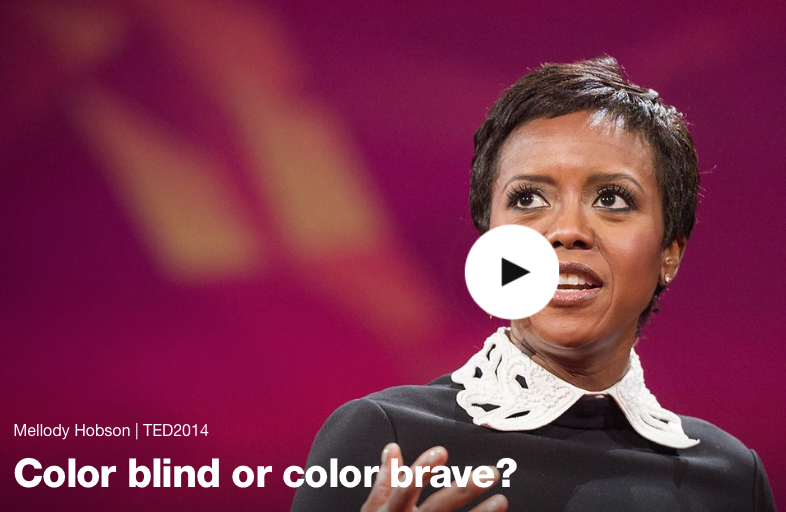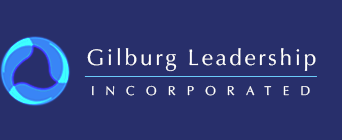January 2019
Articles
A Leaders Guide to Corporate Culture - Harvard Business Review Jan/Feb 2018
 There are several excellent articles and resources in this HBR issue. It may not surprise you to know that culture and leadership are inextricably entwined, and no longer can organizations turn a blind eye to culture. "Culture eats strategy for breakfast" according to the authors, and they have many insights about why and how to impact culture when changing it is needed. The first step to changing culture? Have conversations about it! About the culture, which is often invisible. They even offer an assessment activity to kick off those conversations. I've used it a few times always with interesting results. A must read for anyone who is serious about working towards real culture change.
There are several excellent articles and resources in this HBR issue. It may not surprise you to know that culture and leadership are inextricably entwined, and no longer can organizations turn a blind eye to culture. "Culture eats strategy for breakfast" according to the authors, and they have many insights about why and how to impact culture when changing it is needed. The first step to changing culture? Have conversations about it! About the culture, which is often invisible. They even offer an assessment activity to kick off those conversations. I've used it a few times always with interesting results. A must read for anyone who is serious about working towards real culture change.
How Fearless Organizations Succeed - Strategy + Business Nov 14, 2018
 Amy Edmondson describes three steps leaders can take to create psychological safety, the prerequisite for greater innovation and growth. Psycological safety is a fairly new concept, but one that is scientifically connected to outcomes organizations are seeking - collaboration, innovation and productivity. A nice taste of her book, The Fearless Organization, this article illustrates the difference between "being nice" and making it safe for people to speak their minds.
Amy Edmondson describes three steps leaders can take to create psychological safety, the prerequisite for greater innovation and growth. Psycological safety is a fairly new concept, but one that is scientifically connected to outcomes organizations are seeking - collaboration, innovation and productivity. A nice taste of her book, The Fearless Organization, this article illustrates the difference between "being nice" and making it safe for people to speak their minds.
Leading with Inner Agility: The Five Practices Transformational Leaders must Hone - McKinsey March 2018
 In an age of "disruption" leaders are being called to manage increasingly complex challenges. The authors provide 5 personal practices that can help leaders develop the mindset for effectiveness during transformational times. These practices are: (1) pause to move faster; (2) embrace your ignorance; (3) radically reframe the questions; (4) set direction, not destination; and (5) test solutions -- and yourself. Dig in to learn more!
In an age of "disruption" leaders are being called to manage increasingly complex challenges. The authors provide 5 personal practices that can help leaders develop the mindset for effectiveness during transformational times. These practices are: (1) pause to move faster; (2) embrace your ignorance; (3) radically reframe the questions; (4) set direction, not destination; and (5) test solutions -- and yourself. Dig in to learn more!
The Key to a Mindful Work Life - Mindful September 2018
 This expert Q&A with Sharon Salzberg, Janice Marturano, and Barry Boyce explores the role mindfulness plays in taking leadership, measuring success, and preventing burnout. Being mindful allow us to be present with what is actually going on versus clinging to our models, wishes, or unattainable expectations, and this makes it easier to be resilient and adaptive in our work.
This expert Q&A with Sharon Salzberg, Janice Marturano, and Barry Boyce explores the role mindfulness plays in taking leadership, measuring success, and preventing burnout. Being mindful allow us to be present with what is actually going on versus clinging to our models, wishes, or unattainable expectations, and this makes it easier to be resilient and adaptive in our work.
Book
The Power Manual: How to Master Complex Power Dynamics by Cyndi Suarez
 I LOVE THIS BOOK! I've recommended it to many people. Its super fresh, mindblowingly illuminating, and deeply systemic. Suarez succinctly takes on the issue of power which is at the heart of most (if not all) of current tensions and conflicts in our world. She draws from so many disciplines, expertly weaving together: sociology, neuroendocrinology, psychoanalyis, anthropology, political theory, economics, business management, spiritual mysticism, feminist theory, postmodern theory and improvisational theater to make her case. If you are ready to unravel the differences between Dominant and Liberatory power, to understand how to disrupt dominant patterns and bring more liberation and joy into your life and to those around you, this is the book for you! It has transformed my thinking and if we cross paths anytime soon you'll be hearing about how!
I LOVE THIS BOOK! I've recommended it to many people. Its super fresh, mindblowingly illuminating, and deeply systemic. Suarez succinctly takes on the issue of power which is at the heart of most (if not all) of current tensions and conflicts in our world. She draws from so many disciplines, expertly weaving together: sociology, neuroendocrinology, psychoanalyis, anthropology, political theory, economics, business management, spiritual mysticism, feminist theory, postmodern theory and improvisational theater to make her case. If you are ready to unravel the differences between Dominant and Liberatory power, to understand how to disrupt dominant patterns and bring more liberation and joy into your life and to those around you, this is the book for you! It has transformed my thinking and if we cross paths anytime soon you'll be hearing about how!
Videos
 Ok, this is an advertisement, yes. But it brilliantly puts into play some remarkable insights about cooperation, empathy and relationship building that comes straight out of modern brain science. When people work side by side, play a cooperative game, or have a meaningful conversation, it turns on their empathy thus allowing their perspectives, beliefs and even VALUES be affected by others. It offers a key to what is needed for us to get better at working across differences, in cooperation with others who may not be like or think like we do. "Have a beer and discuss" may trivialize how entrenched and polarized we've become, but it suggests a better way. My understanding is they used real people who had no idea what was coming. It helps reveal the dangers of taking ourselves and our perspectives too seriously.
Ok, this is an advertisement, yes. But it brilliantly puts into play some remarkable insights about cooperation, empathy and relationship building that comes straight out of modern brain science. When people work side by side, play a cooperative game, or have a meaningful conversation, it turns on their empathy thus allowing their perspectives, beliefs and even VALUES be affected by others. It offers a key to what is needed for us to get better at working across differences, in cooperation with others who may not be like or think like we do. "Have a beer and discuss" may trivialize how entrenched and polarized we've become, but it suggests a better way. My understanding is they used real people who had no idea what was coming. It helps reveal the dangers of taking ourselves and our perspectives too seriously.
Color blind or color brave? Mellody Hobson, TED2014
 This Ted Talk challenges to us to become "comfortable with the discomfort" in talking about race and oppression. It is this discomfort that keeps us from addressing the very real and debilitating inequities of racism in the systems that serve Americans (think education, healthcare, criminal justice, economic, housing...to name a few). Being "color brave" and talking openly about race and diversity is the first step to addressing the oppressive aspects of race in our culture. (see Guide to Corporate Culture, above to see why). And if you care about equity, definitely consider reading the The Power Manual, above for a deeper dive on oppression in general, and the impacts on ALL OF US.
This Ted Talk challenges to us to become "comfortable with the discomfort" in talking about race and oppression. It is this discomfort that keeps us from addressing the very real and debilitating inequities of racism in the systems that serve Americans (think education, healthcare, criminal justice, economic, housing...to name a few). Being "color brave" and talking openly about race and diversity is the first step to addressing the oppressive aspects of race in our culture. (see Guide to Corporate Culture, above to see why). And if you care about equity, definitely consider reading the The Power Manual, above for a deeper dive on oppression in general, and the impacts on ALL OF US.
